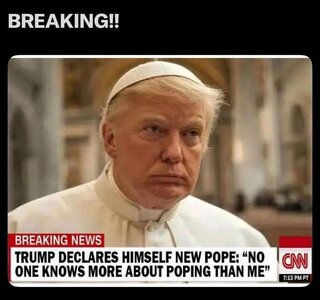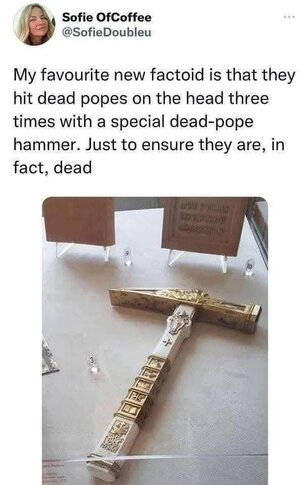NotHardUp1
What? Me? Really?
Much will be said in the coming days of Pope Francis and his views, his humility, and his legacy.
But the Holy Father has expanded the College of Cardinals, and the Consistory will include 20 new cardinals that he created.
It's also true that he appointed 80% of those under 80 who will be the electors of the next Bishop of Rome. Does that mean his progressive views will be amplified by a more progressive successor, or did he necessarily elevate more progressives?
Will the new Pope come from Asia, the Levant or Africa? Or will it be a surprise from a more conventional locale in Europe or Latin America?
Will the conservative influence of the Global South appear in the new prelate choice?
Many like to pronounce the death of religion or its decline, but Chritianity remains the world's most populous religion and Holy Roman Catholicism remains its most numerous denomination. The Church of Rome continues to affect the world beyond Europe.
But the Holy Father has expanded the College of Cardinals, and the Consistory will include 20 new cardinals that he created.
It's also true that he appointed 80% of those under 80 who will be the electors of the next Bishop of Rome. Does that mean his progressive views will be amplified by a more progressive successor, or did he necessarily elevate more progressives?
Will the new Pope come from Asia, the Levant or Africa? Or will it be a surprise from a more conventional locale in Europe or Latin America?
Will the conservative influence of the Global South appear in the new prelate choice?
Many like to pronounce the death of religion or its decline, but Chritianity remains the world's most populous religion and Holy Roman Catholicism remains its most numerous denomination. The Church of Rome continues to affect the world beyond Europe.









